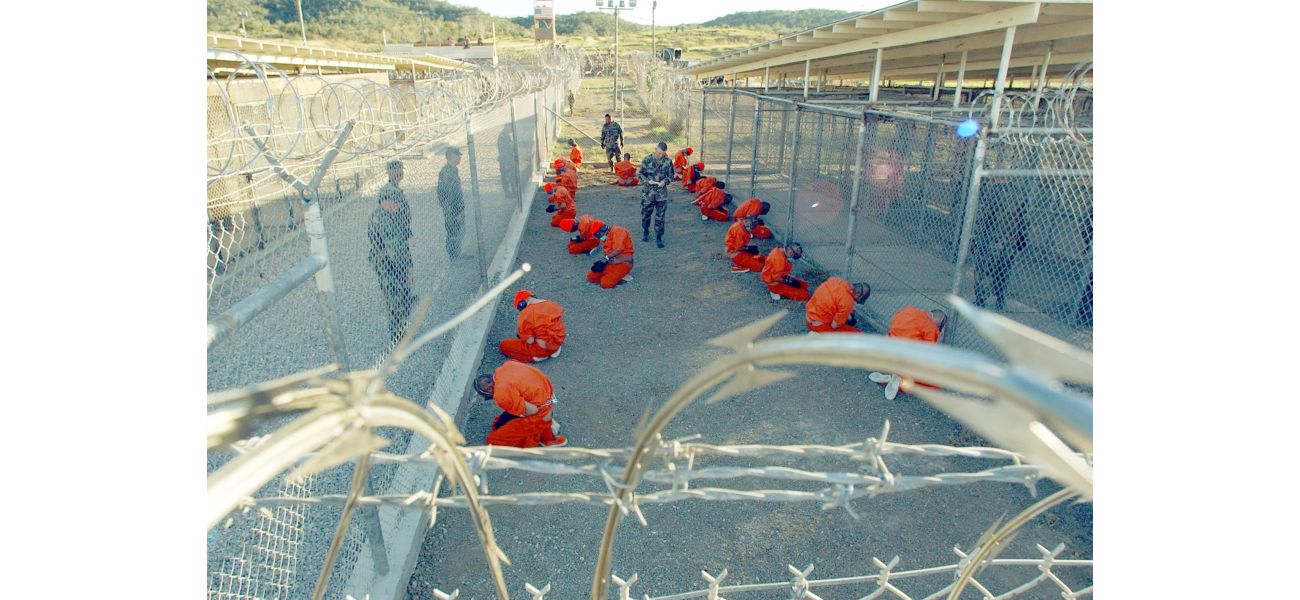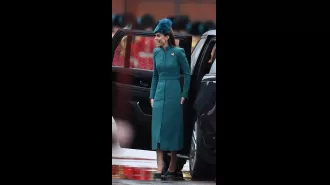After 23 years, the longest-held prisoner at Guantanamo Bay has been freed from his uncertain situation.
Guantanamo Bay is known for its history of torture and endless imprisonment.
December 31st 2024.

In a scene that has become all too familiar, Taliban prisoners dressed in orange jumpsuits were seen being monitored by military police in a holding area at Camp X-Ray in Guantanamo Bay, Cuba. This notorious US prison has been dubbed the "Gulag of our times" due to its history of torture, degradation, and indefinite detention. However, amidst all the controversy and criticism, one prisoner has finally been released after more than two decades in limbo.
Ridah bin Saleh al-Yazidi, a Tunisian national, was repatriated to his home country from Guantanamo on Monday. This 59-year-old man has been in custody since the prison opened on January 11, 2002, and has never faced charges or been given a fair trial. Human rights groups have long argued that the accusations against him were based on unreliable assessments derived from torture or false statements from other detainees trying to gain favor.
Despite being cleared for release by both the Bush and Obama administrations in 2007, Yazidi remained in Guantanamo for over a decade as no deal was made for his transfer. Finally, the Biden administration has taken steps to reduce the prison's population, and Yazidi's transfer is the fourth in just two weeks. The Pentagon has stated that he was deemed "transfer-eligible" after a thorough interagency review process and that the Secretary of Defense, Lloyd Austin, notified Congress of his intent to support this repatriation in January 2024.
Guantanamo Bay has been a contentious issue since its establishment at the US military base in Cuba. The facility has held a total of 780 people, with former President Barack Obama issuing an executive order to close it in 2009. However, 15 years later, 26 individuals still remain in custody, with only 14 eligible for transfer. The rest are either involved in the military commissions process or have been convicted and sentenced.
As the world continues to debate the legality and morality of Guantanamo Bay, it is important to remember that the camp was initially set up to house detainees captured during America's "war on terror" after the tragic events of September 11, 2001. But as time goes on, the fate of these prisoners becomes increasingly uncertain, and their ongoing detention raises serious questions about human rights and justice.
Ridah bin Saleh al-Yazidi, a Tunisian national, was repatriated to his home country from Guantanamo on Monday. This 59-year-old man has been in custody since the prison opened on January 11, 2002, and has never faced charges or been given a fair trial. Human rights groups have long argued that the accusations against him were based on unreliable assessments derived from torture or false statements from other detainees trying to gain favor.
Despite being cleared for release by both the Bush and Obama administrations in 2007, Yazidi remained in Guantanamo for over a decade as no deal was made for his transfer. Finally, the Biden administration has taken steps to reduce the prison's population, and Yazidi's transfer is the fourth in just two weeks. The Pentagon has stated that he was deemed "transfer-eligible" after a thorough interagency review process and that the Secretary of Defense, Lloyd Austin, notified Congress of his intent to support this repatriation in January 2024.
Guantanamo Bay has been a contentious issue since its establishment at the US military base in Cuba. The facility has held a total of 780 people, with former President Barack Obama issuing an executive order to close it in 2009. However, 15 years later, 26 individuals still remain in custody, with only 14 eligible for transfer. The rest are either involved in the military commissions process or have been convicted and sentenced.
As the world continues to debate the legality and morality of Guantanamo Bay, it is important to remember that the camp was initially set up to house detainees captured during America's "war on terror" after the tragic events of September 11, 2001. But as time goes on, the fate of these prisoners becomes increasingly uncertain, and their ongoing detention raises serious questions about human rights and justice.
[This article has been trending online recently and has been generated with AI. Your feed is customized.]
[Generative AI is experimental.]
0
0
Submit Comment





